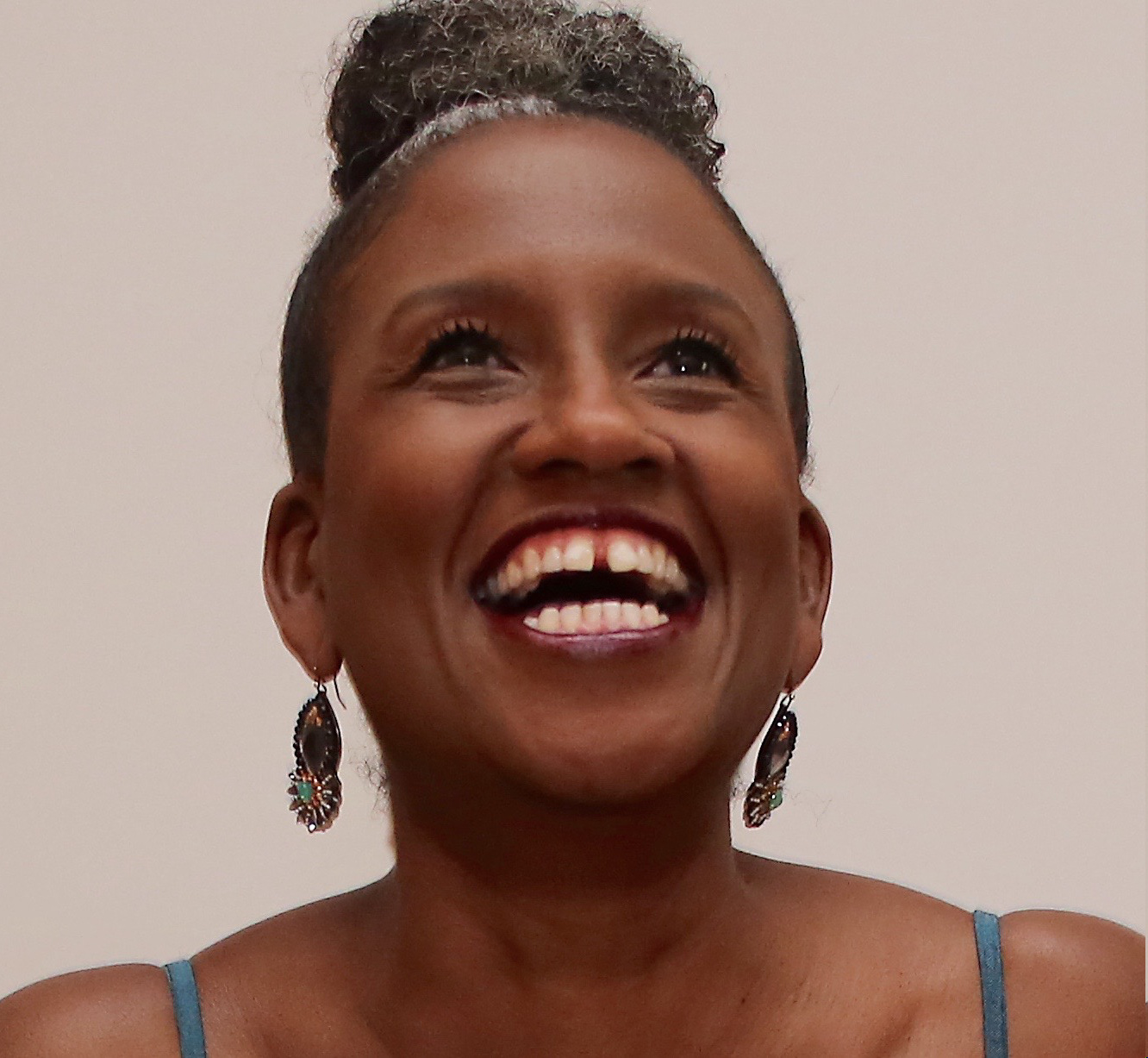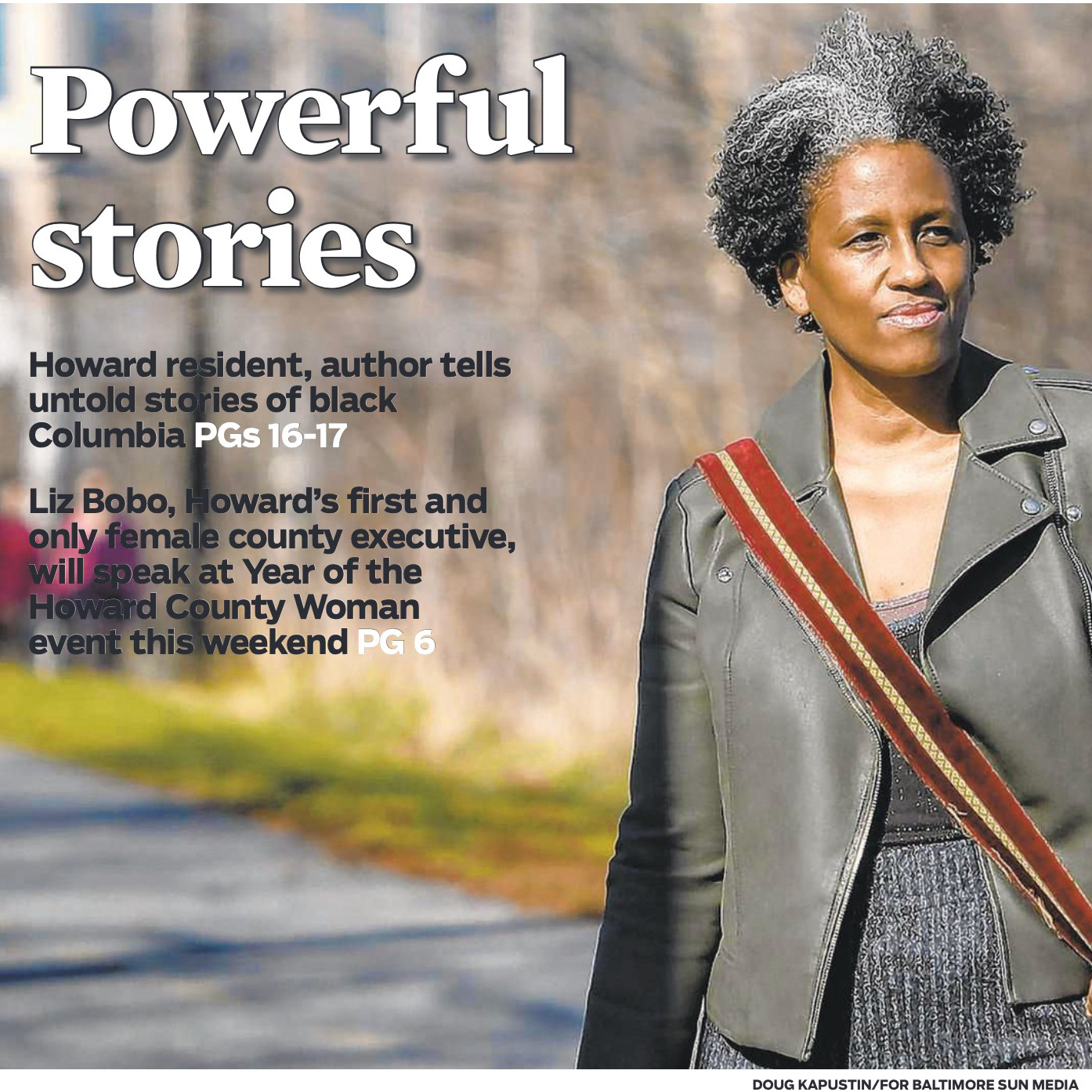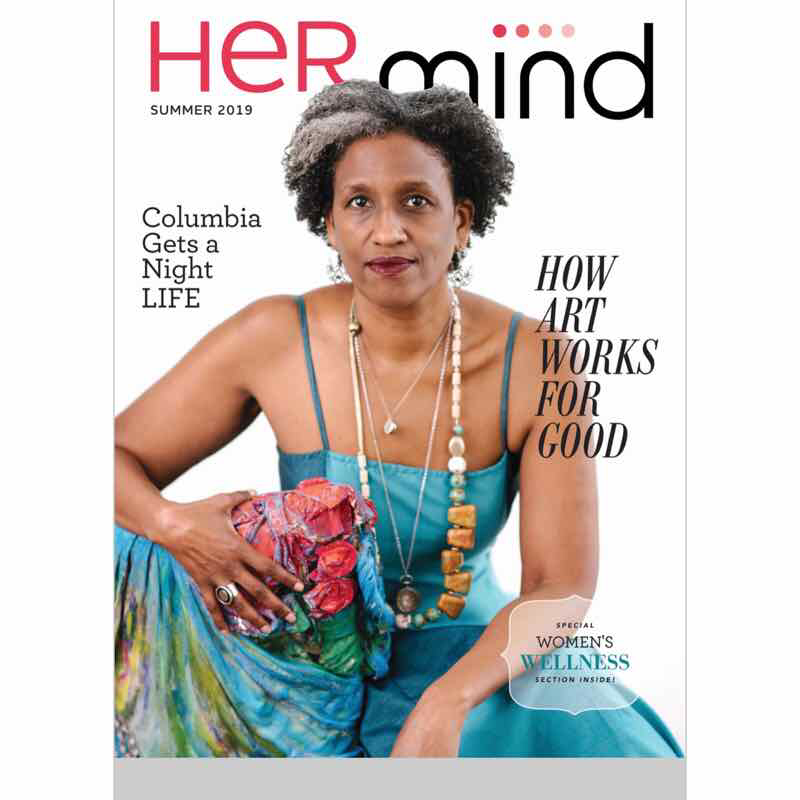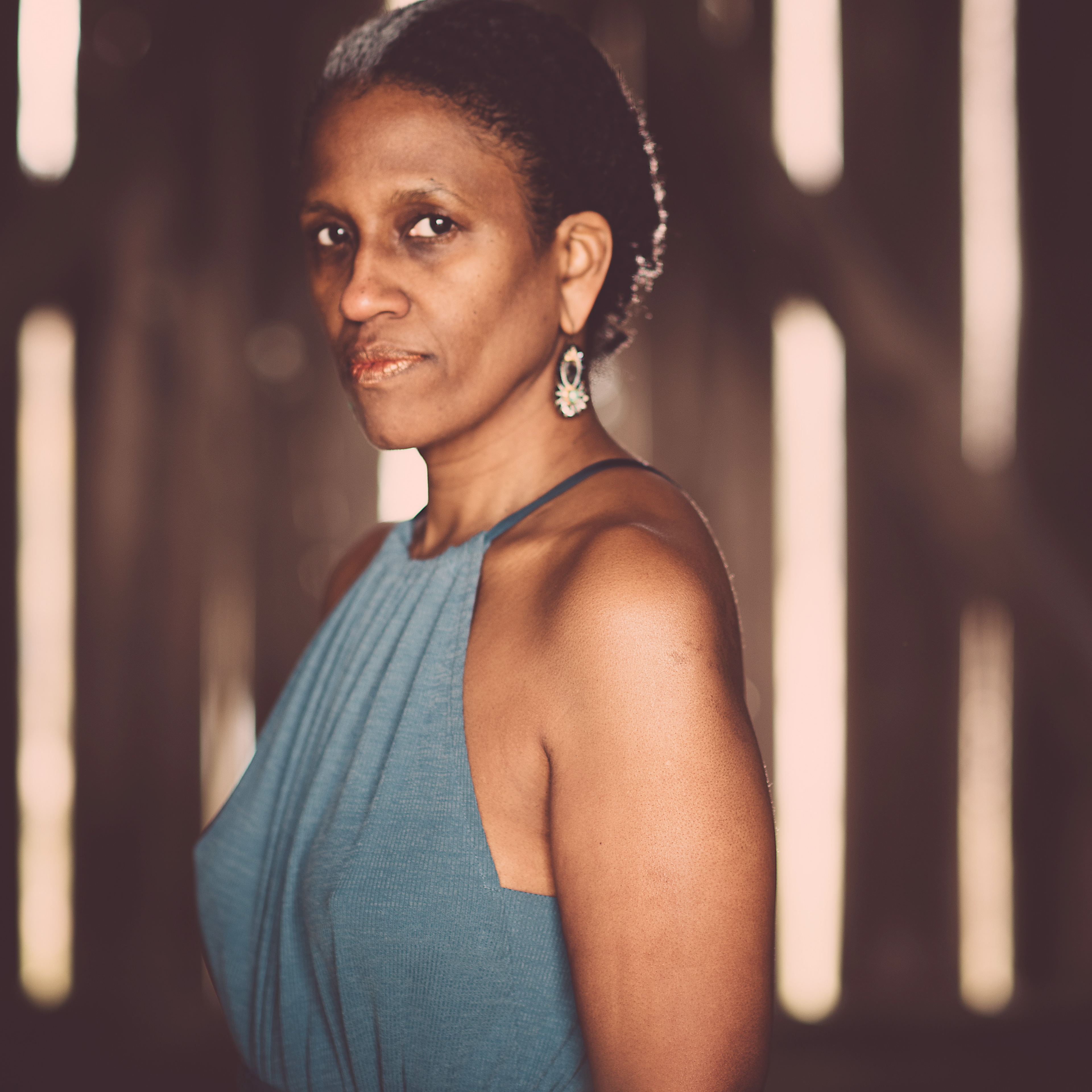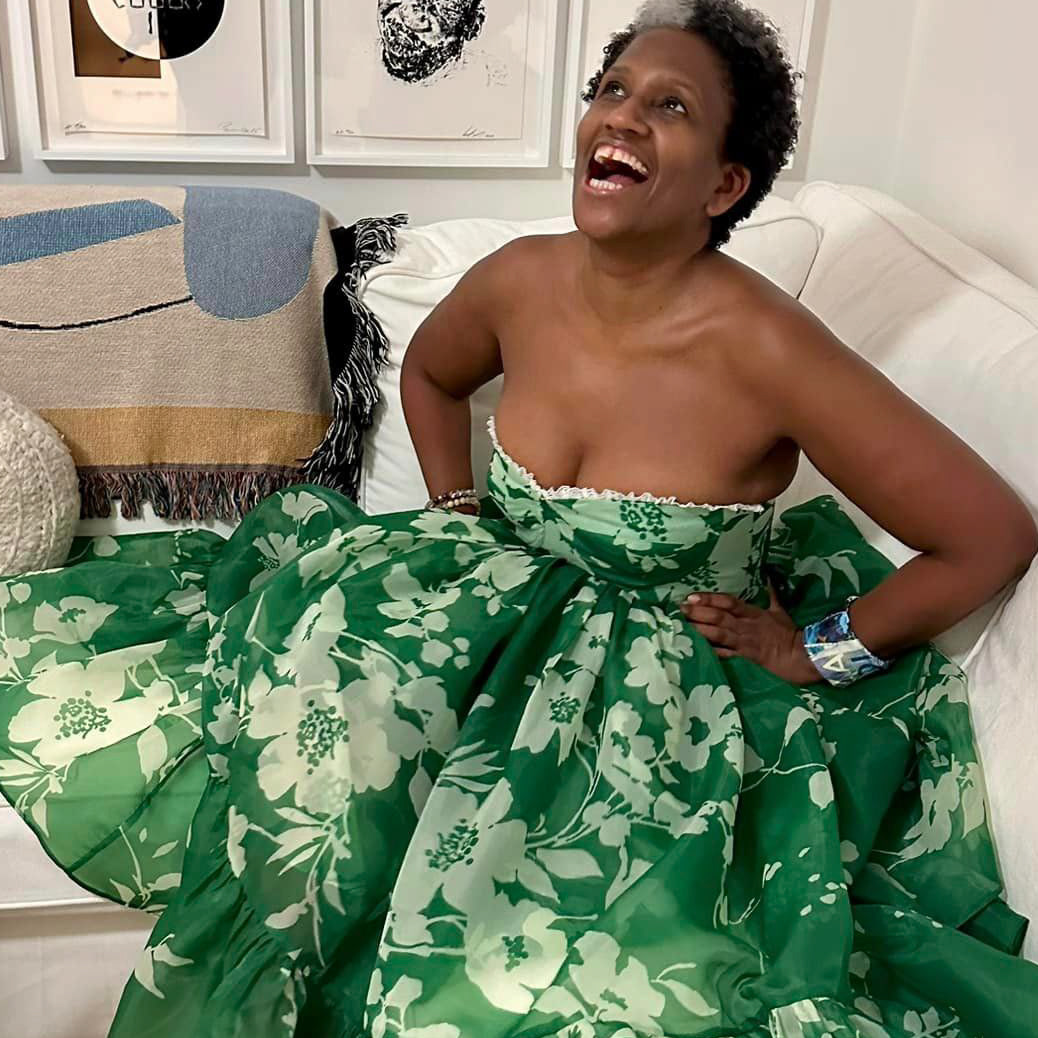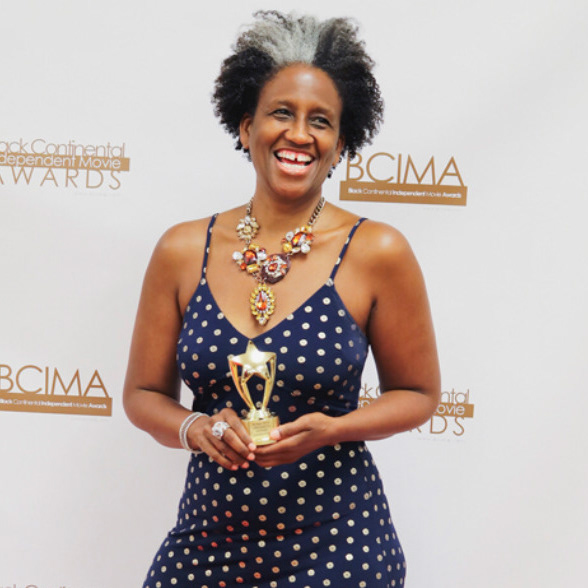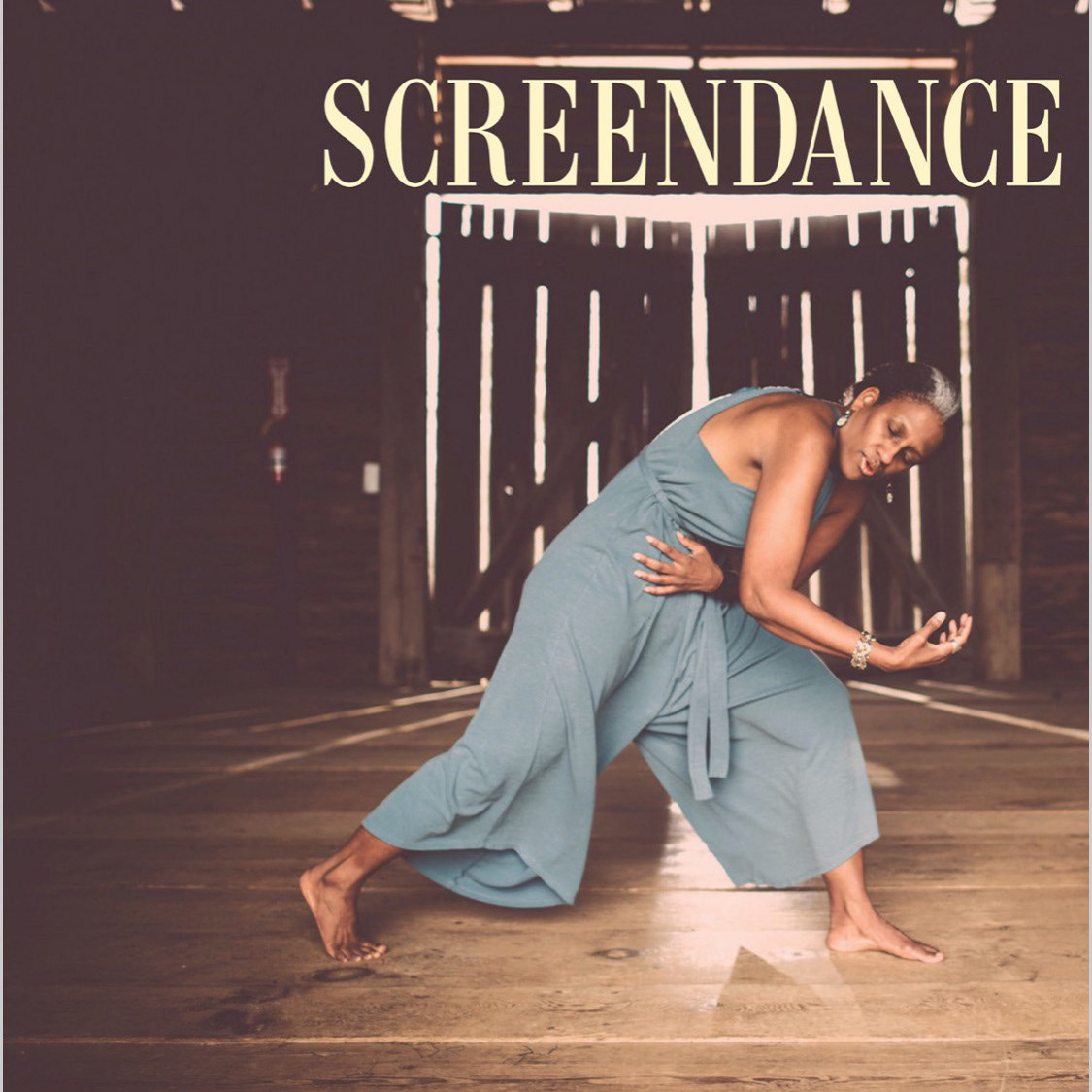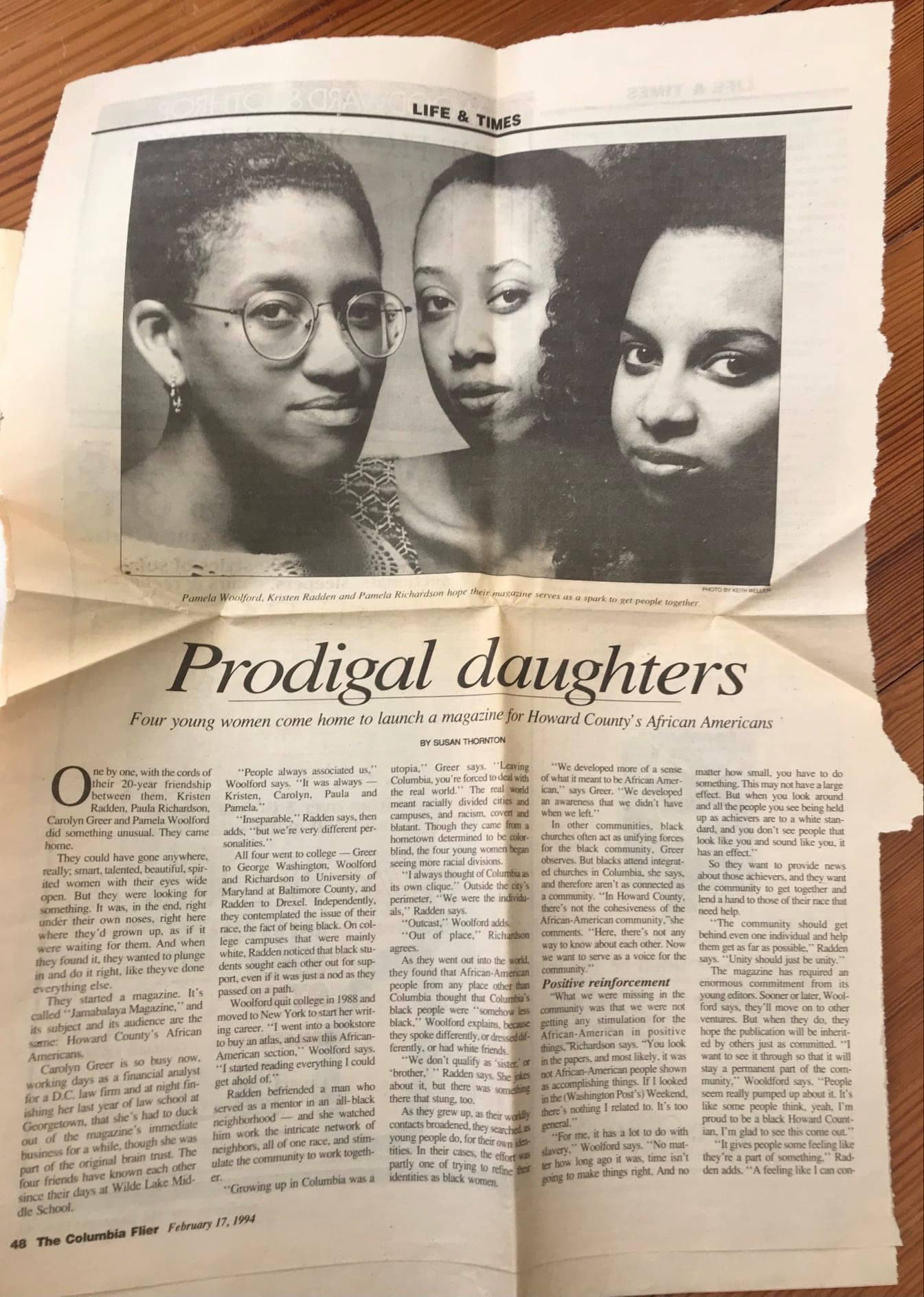
Feature story on Pamela Woolford, Kristen Radden, Paula Richardson, and (not pictured) Carolyn Greer when they cofounded Jambalaya, Inc., in the early 1990s.
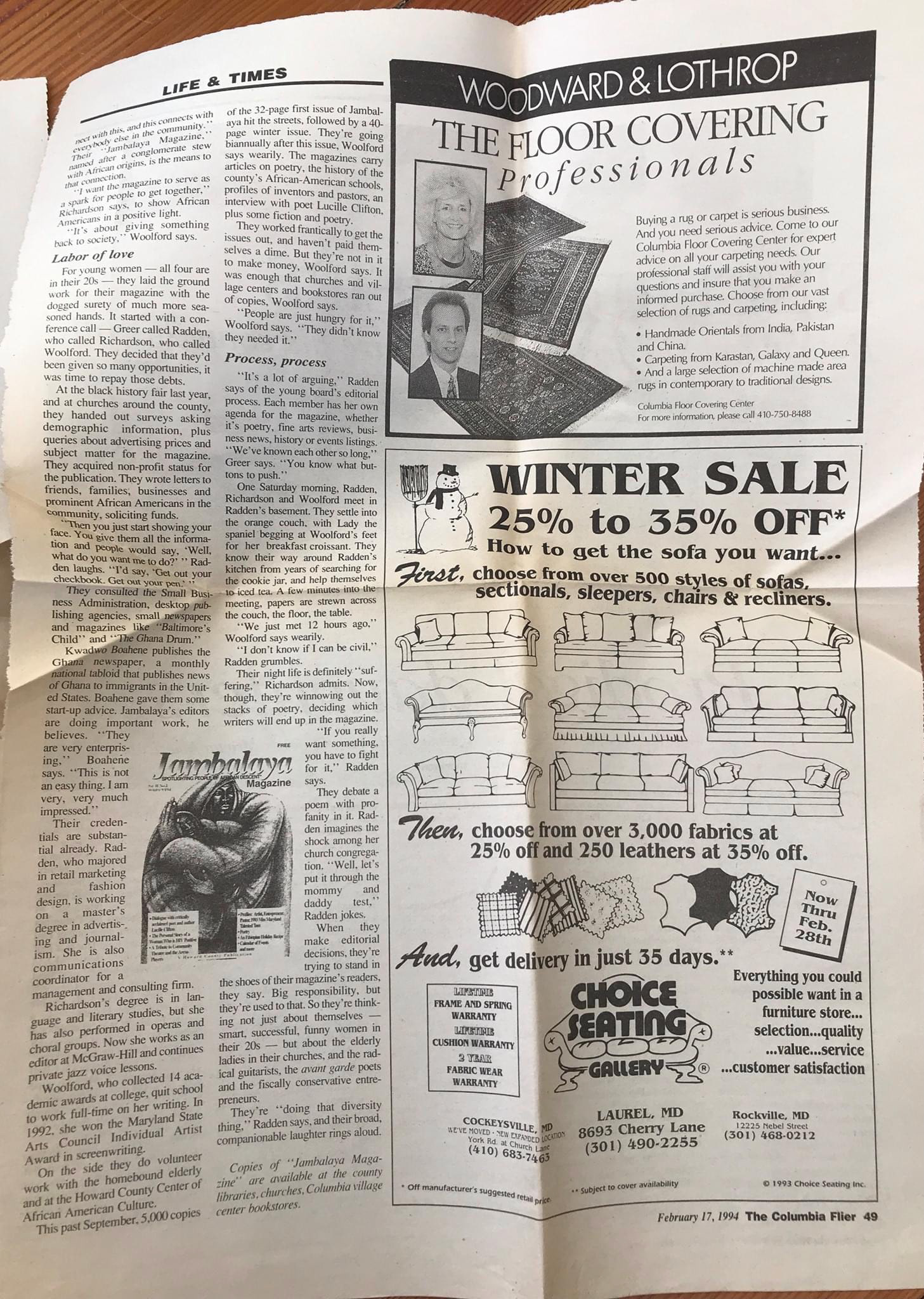
Pamela Woolford in a clip from a 1996 local television news story on Maryland Jambalaya-Fest.
Pamela Woolford in her studio apartment in Washington, DC, circa 2003.
A brief clip of Pamela Woolford performing her own Middle-Eastern/West-African fusion choreography in 2001 or 2002.
A brief clip of Pamela Woolford performing her own Middle-Eastern/West-African fusion choreography in 2001 or 2002.
Writer, filmmaker, and performer Pamela Woolford begins her career in the arts in the early 1990s, writing poetry and short stories selected for literary journals. She also writes her first screenplay, “Emile,” based on her short story of the same name in which a young black man is called the “n” word, leading to a series of events changing the trajectory of his life. For “Emile,” Pamela earns a Maryland State Arts Council Individual Artist Award and grant in screenwriting.
In 1992 she co-founds the nonprofit Jambalaya, Inc., for which she soon serves as editor of Jambalaya Magazine and then director of the Maryland Jambalaya-Fest. Both projects spotlight and celebrate the diversity of people of African descent. For the magazine Pamela interviews such luminaries as Lucille Clifton and Wintley Phipps. For her work with the organization, she becomes the recipient of honors, including a Maryland House of Delegates Official Citation and local commendations from the NAACP, the National Association of Negro Business and Professional Women's Clubs, the Office of the Howard County Executive, and the Howard County Black Student Achievement Program.
Soon she begins writing literary journalism in addition to her fiction and interview work, including a think piece on race, art, and public funding, which the Howard County Arts Council publishes in the mid-'90s. In 2000 she becomes a correspondent for The Baltimore Sun, writing human-interest stories for her bylined Neighbors column, and also writes a separate column of book-club profiles for the paper and other articles profiling the extraordinary in ordinary lives.
By now she is writing freelance for journals, too. Her most cited freelance article becomes "Filming Slavery," her interview with independent filmmaker Haile Gerima after the release of his film Sankofa. She publishes "Filming Slavery" in 1994 in Harvard University’s Transition. It remains, over decades, required reading for courses at colleges and universities. The books and scholarly works in which "Filming Slavery" is cited include L.A. Rebellion: Creating a New Black Cinema edited by Allyson Nadia Field, Jan-Christopher Horak, and Jacqueline Najuma Stewart (University of California Press, 2015) and Shaping the Future of African American Film by Monica White Ndounou (Rutgers University Press, 2014).
The same year she publishes “Filming Slavery,” Pamela begins performing as a dancer, becoming a member of Aurora Dance Company, a modern and West African troupe then in residence at Howard Community College in Columbia, Maryland. Soon she performs, in concerts and at festivals, her own solo fusion choreography and Middle-Eastern dances by others, including renowned world-fusion choreographer Dalia Carella. A longtime student of various dance forms, including modern, West African, Caribbean, Middle Eastern, and Katherine Dunham techniques, she studies with choreographers MiaNaja Al Sephira, Lotus Niraja, and the late Eva Anderson among others.
Having studied voiceover acting with dialect and voice instructor Nancy Krebbs, she performs her first voiceover recordings in 2003, doing PSAs for the City Museum of Washington, DC, and the Historical Society of Washington, DC. and in 2014 records voiceover for the play Souvenir: A Fantasia on the Life of Florence Foster Jenkins at 1st Stage Theatre in McLean, Virginia.
In 2016 she models for a representation of enslavement of African people for photographer Fabrice Monteiro and documents the experience in her essay “Here I Am Looking” for Eunoia Review, which is then translated into German for Briefe aus Amerika and selected for the anthologies Fantasma: An Anthology of Whispers edited by Adura Ojo and David Ishaya Osu and Fury: Women's Lived Experiences During the Trump Era edited by Amy Roost and Mary McNaughton-Cassill. Her selection for Fury is accompanied by an interview aired on the podcast of the same name.
Also in 2016, she writes and directs film scenes for her conceived multidisciplinary memoir collection Meditations on a Marriage, excerpts from which place her on the shortlist for the 2017 Fish Publishing Short Memoir Prize and make her a 2016 Tucson Festival of Books Literary Awards finalist. That year she is featured with an interview on the filmmakers’ site The Creative Outsiders. The following year she scripts and directs Truth & Story, a vlog co-hosted by her and her mother, Sadie Woolford, who is also a writer.
Pamela’s connection to storytelling in all its forms—filmmaking, writing, performing—begins in childhood, listening to her mother read to her classic literature, myths, fables, and fairytales and listening to Sadie’s stories of growing up in rural North Carolina in the '30s, '40s, and ‘50s—a life far removed from Pamela’s suburban Columbia, Maryland, upbringing. It is these stories and the classic literature Sadie reads to Pamela as a child that inspire Pamela, decades later, to write her short story “Just After Supper,” from which she eventually adapts the script for her short film Generation.
Pamela publishes "Just After Supper" in Origins Journal in late 2016. Just weeks later novelist and Pushcart Prize editor Mark Wisniewski nominates "Just After Supper" for a 2018 Pushcart Prize. Also in late 2016, Pamela publishes her short story “Pleasant People” on the site Alfie Dog Fiction, reprinted from the 2012 anthology Amazing Graces edited by Richard Peabody. Then "Pleasant People" is also nominated for a 2018 Pushcart Prize.
In early 2018 Pamela completes work on her experimental solo-screendance short Generation, which she writes, directs, edits, and sound designs. She is the primary actor and dancer and performs the voiceover narration of the elderly woman. Sadie co-stars and serves as executive producer. Generation is selected for several festivals, including touring collections, and wins a 2018 North Beach American Film Festival Jury Award and a 2018 Experimental Forum Honorary Mention Award.
Author of more than 100 essays, short stories, and articles published in newspapers and journals, Pamela, in 2014, authors a nonfiction book for a public figure as a ghostwriter for BusinessGhost. In 2017 she writes the essay “My Father with This Illness” for inclusion in the anthology Love in a Silent Storm edited by Marita Golden, alongside writings by Edwidge Danticat and Julie Otsuka.
In addition to her work as an artist, Pamela spends her career working in arts and nonprofit administration and PR and marketing for museums, helping to raise millions of dollars for arts, cultural, and community-enrichment projects; designing and promoting programs featuring artists like Rita Dove, Billy Collins, and Rachel Eliza Griffiths; and garnering project support in the form of local, national, and international media attention as well as support from private corporations, public agencies, and elected officials.
Pamela’s creative work today is primarily concerned with the lives of black women and girls and others whose joy, history, and inner life are underexplored in American media and popular art. At heart, she is a storyteller—telling creative nonfiction stories, fiction inspired by true-life stories, and fiction inspired by the history of a people.
A production still from Pamela Woolford's 2018 film Generation.
